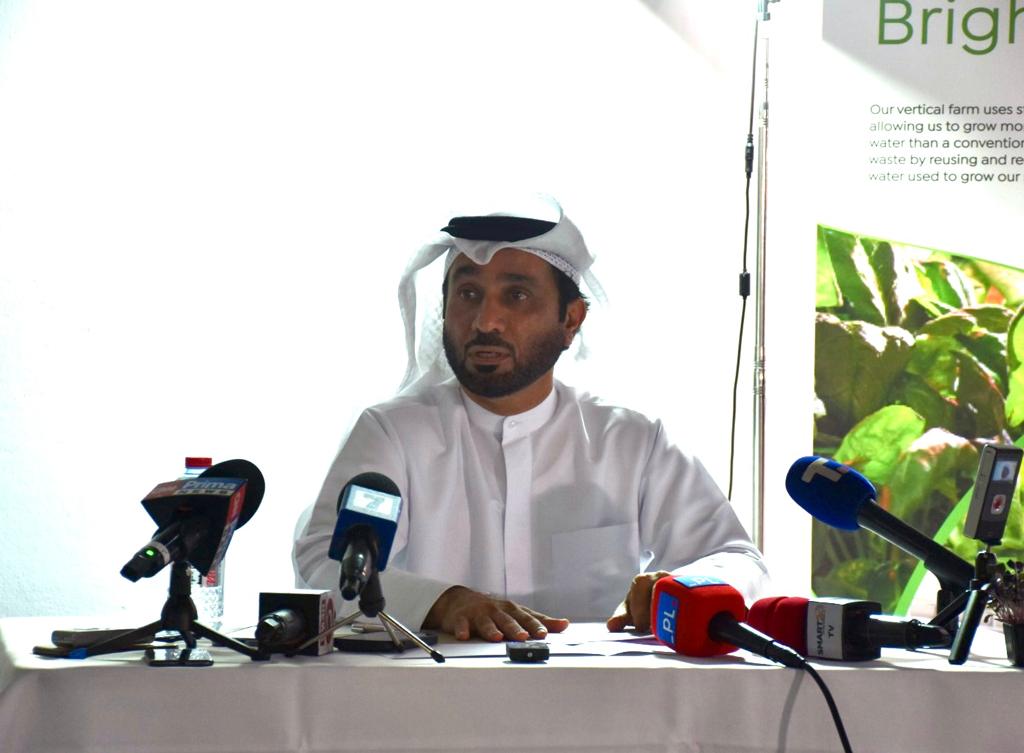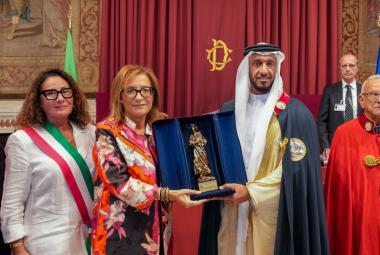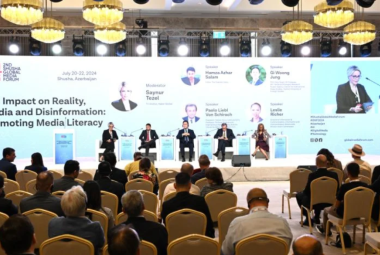By Zainab Jobarteh
The United Arab Emirates (UAE) will be hosting the next United Nations Climate change Conference of Parties (COP28) to be held in November 2023. Ahead of the global climate summit, the oil-rich gulf state, through the Emirati News Agency (WAM) invited journalists and media personnel around the world to tour the country’s sustainability projects. The projects include Mohammad Bin Rashed Solar Park and the Green Hydrogen Project in Dubai.
The Solar Park, which started operating in 2013 and increases in capacity as the city grows is the biggest industrial single site solar park in the world with 2,427 megawatts and is expected to be at 5000 megawatts by 2030. It currently has 3 million solar panels and provides energy to over 240,000 homes in Dubai.
Muhammad Ahmad Jame, the Acting Vice President at Clean Energy and Diversification explained that the solar model is built on Independent Power Purchase (IPP) where developers build, own and operate the project.
‘‘The developers will provide the financing, technology and operation, and Dubai Electricity and Water Authority (DEWA) will in turn purchase the electricity for 25 years,’’ he explained.
Mr. Jame stated that the project is an important and strategic plan for UAE’s green energy production, noting that their aim is to provide the entire city with clean energy.
As part of their efforts to provide 100 percent of energy in the Emirates of Dubai from clean energy resources by the year 2050, DEWA implemented the Green Hydrogen Plant at the Mohammad Bin Rashed Solar Park.
In an interview, the Vice President of Research and Development at DEWA, Dr. Ali Alaleeli said the project is the first of its kind in the Mena region and North Africa as it produces hydrogen using solar energy. He said the project came as a result of expo2020 Dubai and Siemens Energy.
He underscored that they designed the plant to accommodate future applications of hydrogen and ‘‘it is helping us in the testing facility at the research center.’’
Dr. Alaleeli went on to explain that the hydrogen plant has multiple applications and they produce it through a process called water-electrolysis (splitting water into hydrogen and oxygen). In order to do this, he said one needs electricity, and that the attractive thing about the plant is that it is getting the electricity from solar energy.
UAE is known for its harsh climate and weather conditions throughout the year. However, they have been using technology to counter the weather and climatic challenges and to foster development.
Bustanica
Bustanica is the world’s largest vertical farm at 330,000sq ft, spanning three floors, producing over 1,000,000 kg of produce per year, using 95% less water and zero soil.
H.E Eng. Mohamed Mousa Al Ameeri, the Undersecretary of Food Diversity Sector at the Ministry of Climate Change and Environment said C0P28 represents a milestone moment in UAE’s collective efforts to keep 1.5 degree Celsius alive.
To fast track a fair and quick energy transition, he pointed out that UAE’s presidency aims to address climate finance, focus on people, lives and livelihoods as well as underpin every discussion with the spirit of total inclusivity.
‘‘In the UAE, we have put a great deal of effort into innovative food programs such as this incredible vertical farm. It shows what can be achieved in a short period of time,’’ he said.
Eng. Mohamed revealed to journalists that UAE grows rice in the desert and farming Atlantic salmons in their oceans, adding that with the right mindset, everything is possible.
UAE is one of the countries with little or no rainfall, the Undersecretary stated that due to UAE’s lack of water, vertical farming has proven itself to be very important, adding that it is a solution which ‘‘overcomes our climate and allows us to grow what we need in all 12 monthsof the year’’.
He informed that their vertical farming at Bustanica uses 95% less water, relies on 80% less space, uses less energy, makes healthier products, uses fewer pesticides and is more versatile.
While farming might not be the first industry that springs to mind in UAE, Eng. Mohamed said they are working hard to increase self-sufficiency and provide long-term, viable food solutions for their growing population.
‘‘We will continue to take bold steps, use new technology, close the food gap and tackle food lose and waste,’’ he affirmed.






